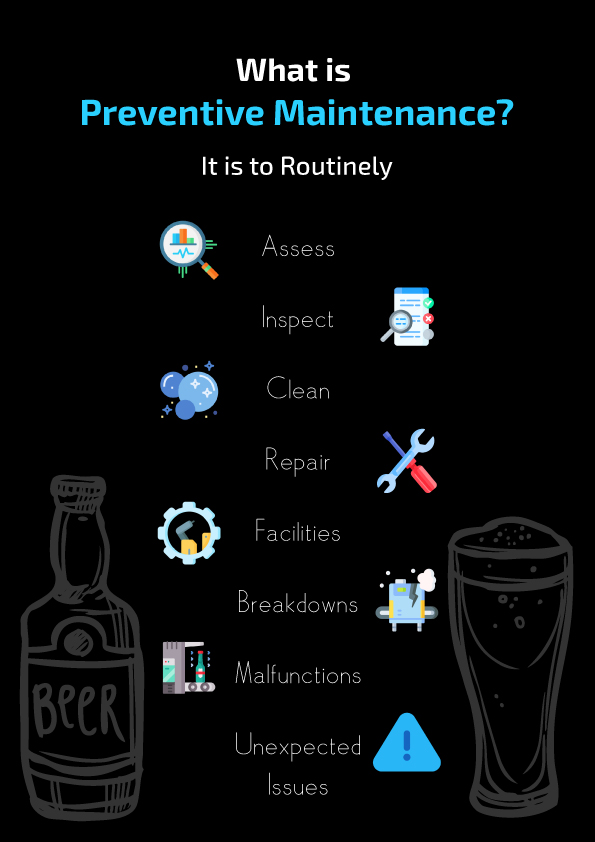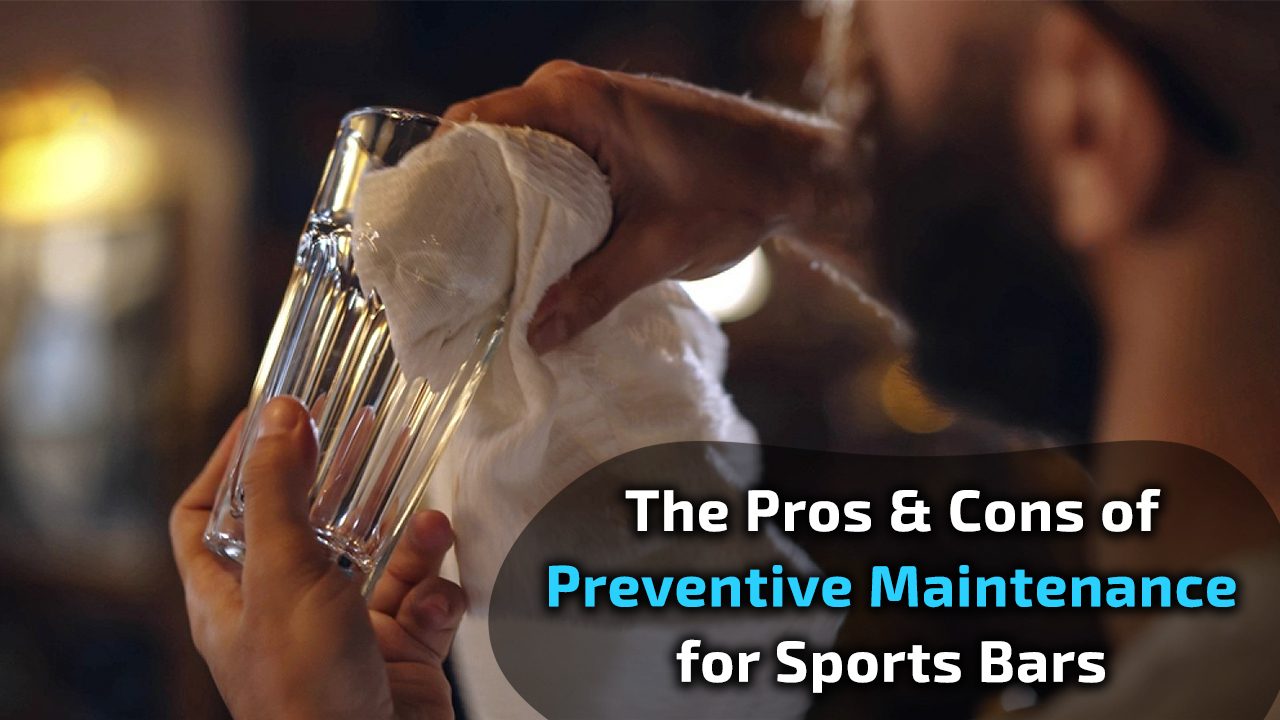Preventive maintenance for sports bars is an excellent strategy to ensure that all equipment and facilities function at their highest efficiency. However, like any agreement, there are pros and cons to consider before investing in a preventive maintenance plan. In this article, we’ll discuss the advantages and disadvantages of preventive maintenance for sports bars.
What is Preventive Maintenance?

Preventive maintenance for sports bars is an agreement between a business and an outside contractor to routinely assess, inspect, clean, and repair any bar equipment or facilities. It’s designed to prevent breakdowns, malfunctions, or other unexpected issues before they can affect the operations of the business. Done properly, it can keep the sports bar running smoothly and minimize expensive emergency repairs.
Advantages of Preventive Maintenance
One of the main advantages of preventive maintenance for sports bars is that it can provide cost savings in the long-run. By regularly checking and servicing your equipment and facilities, you’ll be able to catch any potential problems before they become major issues. This could save your business from expensive emergency repairs or replacements of damaged or outdated equipment, thus reducing overall costs in the long-term.
Disadvantages of Preventive Maintenance
Another disadvantage of preventive maintenance for sports bars is the initial time and cost involved when setting up a maintenance plan. Implementing a preventive maintenance program requires considerable effort from management in terms of creating schedules, arranging check-ups, and tracking progress. It also likely involves one-time costs for training or hiring professionals to deal with any repairs or replacements necessary.
Equipment to Consider For Preventive Maintenance
For sports bars, preventive maintenance should include equipment like lighting systems, fixtures, and sound systems. Be sure to evaluate the costs of replacing each piece of equipment. Additionally, consider the condition and age of your current equipment; if it’s too old or worn out, then preventive maintenance will provide little benefit and may not be worth it in the long run. Consider tracking other pieces of equipment that are prone to breakdowns or require regular servicing.
Tips for Scheduling and Implementing Preventive Maintenance
Scheduling and implementing preventive maintenance for your sports bar’s equipments is important for ensuring their optimal performance. Consider developing a preventive maintenance checklist that outlines each piece of equipment, any replacement parts or materials needed, frequency of maintenance, and safety procedures applicable to certain activities. It can also be beneficial to equipment longevity to assign individual responsible persons for managing routine checkups or conducting their organized progress during the prescribed frequency. Lastly, keep records of all preventive maintenance that is conducted for future reference or decision-making.

